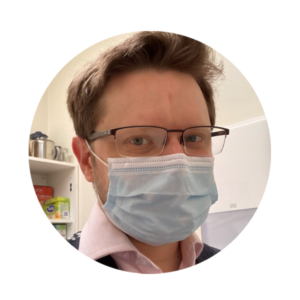This online event, organised by the ACAMH Southern Branch, will showcase a piece of local research and invite conversation about salient topics in CAMHS. The first half of the session Alex Christie, Clinical Nurse Specialist, Hampshire CAMHS, and Digital Clinical Safety Officer, Sussex Partnership NHS Foundation Trust, will deliver a talk on ‘What IS the work of the Duty Clinician in a Specialist CAMHS Team?’.
The second part of the session will be an interactive open forum discussion with delegates. We will be looking at ‘How to use creative and innovative practices to identify opportunities and overcome the challenges of the pressures on CAMHS services’. You will have the chance to share ways you, and your service, have developed and improved, what were the obstacles to change and how these were overcome, what more could we do, and how can we realistic implement change to achieve this. It is a chance to learn, network and explore important topics with CAMHS colleagues.
About the webinar
Alex Christie – What IS the work of the Duty Clinician in a Specialist CAMHS Team?
This project arose from the need to identify any effective models for managing a large number of Duty Calls in to a Specialist CAMHS Team in South-Central England. For the team in question, the crisis in adolescent mental health provision was reflected in staff being unable to respond to all urgent contact in a timely way, and clinicians were highly concerned that urgent clinical risks might be missed.
With a literature review providing little by way of guidance on the most effective or efficient ways of managing urgent and unplanned care within community CAMHS, the author reviewed a year’s worth of calls, emails and contacts received by the team. The logs were analysed both statistically and thematically in an attempt to quantify and describe the nature of the work being done by the Duty Clinician system, with a view to then being able to look for solutions to any key themes identified.
In this talk, the author will share the journey of one team’s attempt to iteratively problem-solve their way out of a national crisis, along with presenting a comprehensive look of the realities of front-line CAMHS work as revealed through the duty calls and contacts received over twelve months.
Key findings suggest that services need to get smarter about how they communicate their demand & capacity challenges with both partner agencies and the general public, but that tried-and-tested approaches to mental health work remain essential in managing complex and high-risk cases within community CAMHS.
Learning outcomes
- To understand the context for urgent and unplanned work in Specialist CAMHS teams
- To understand the factors that impact on safe & effective triage of such work
- To consider and discuss possible implications for practice
Programme
13:00 – 13:10 – Registration
13:10 – 13:20 – Welcome by Chair Dr Jennie Eeles
13:20 – 14:05 – What IS the work of the Duty Clinician in a specialist CAMHS team? Alex Christie
14:05 – 14:15 – Q&A
14:15 – 15:00 – Open forum discussion ‘How to use creative and innovative practices to identify opportunities and overcome the challenges of the pressures on CAMHS services’
15:00 – Close
About the speakers

Alex Christie, Clinical Nurse Specialist, Hampshire CAMHS provided by SPFT, and Digital Clinical Safety Officer, Sussex Partnership NHS Foundation Trust
Alex is an RNMH who works clinically in the Hampshire CAMHS Digital Team where he provides interventions in a hybrid approach encompassing face-to-face, telemedicine, and online platforms. He is centrally involved in the service’s adoption of the Minddistrict e-Health platform. His background in acute inpatient, CAMHS intensive home treatment and paediatric liaison meant that after joining a locality CAMHS team in 2015 he was his team’s lead for Duty provision. While completing his MSc at the GOSH Institute of Child Health, his dissertation evaluated the work of Duty Clinicians in CAMHS and is it is this work being presented here.

